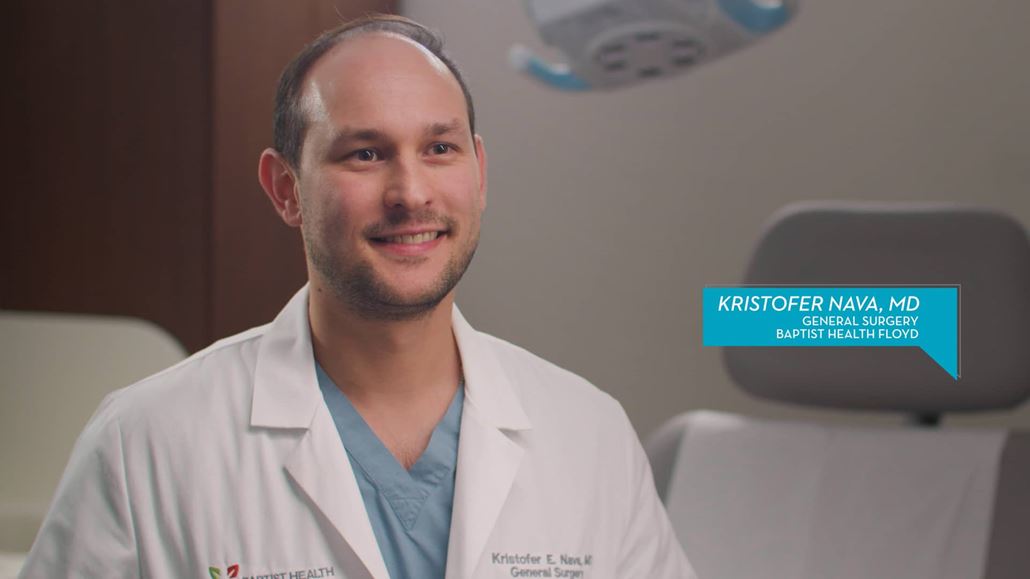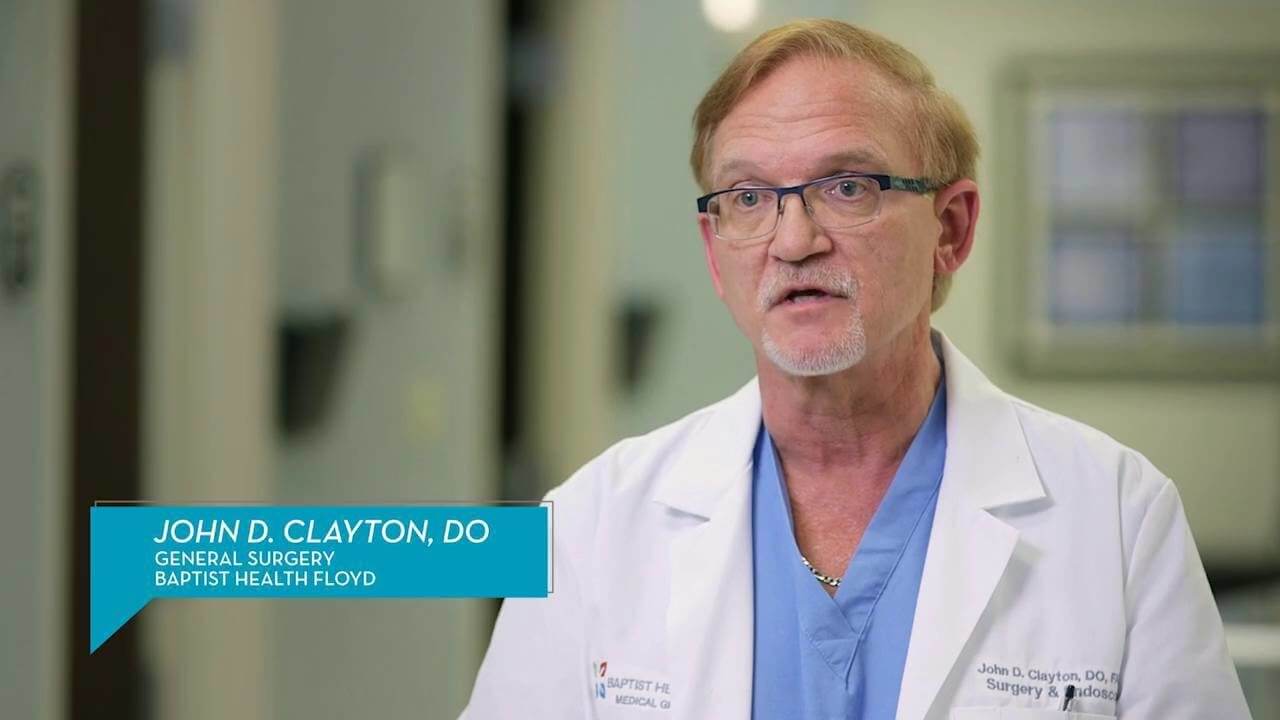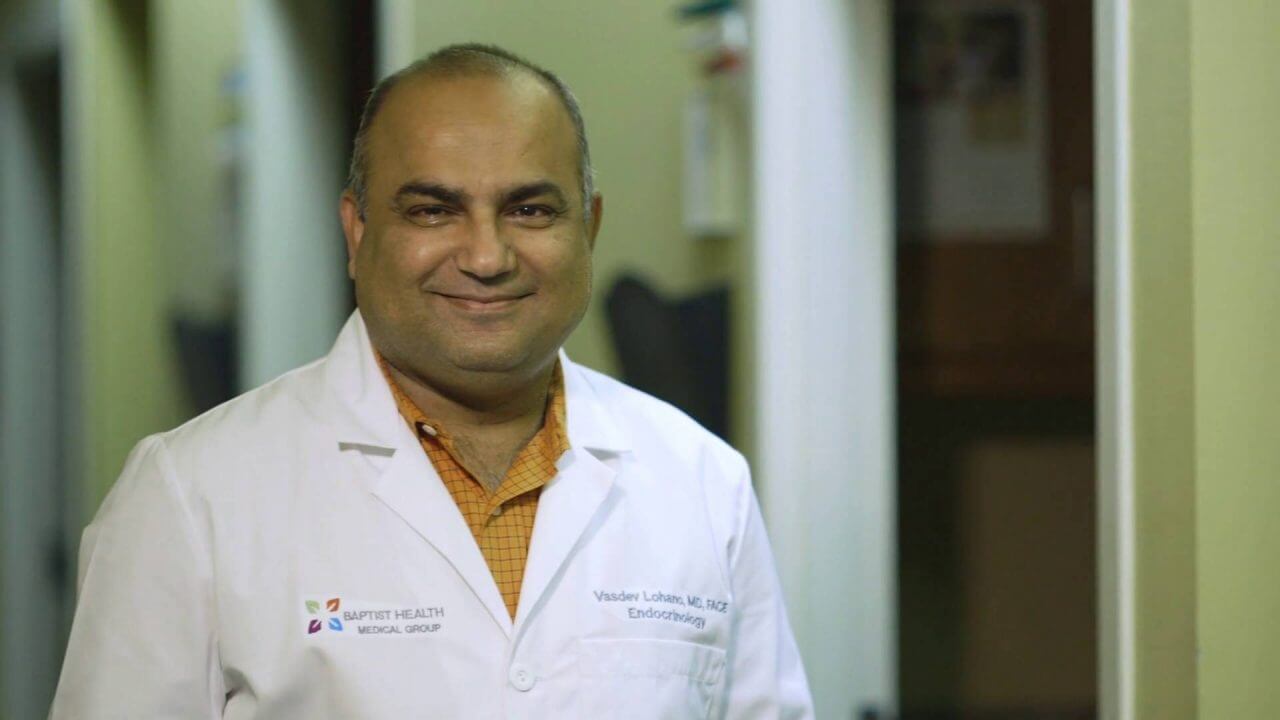How We're Treating Gastroparesis in New Albany, IN

Treating Gastroparesis in New Albany, IN Healthtalks Transcript
Kristofer Nava, MD, General Surgery
Baptist Health Floyd
Kristofer Nava, MD:
Gastroparesis, or paralysis of the stomach, is a pretty rare condition. We're still learning a lot about it. But what we do know is that whenever somebody does develop it, it can change their lives pretty dramatically. Unfortunately, there's really no good medication that's meant to be a long-term fix for the problem, so that's where somebody like me, a surgeon, comes in.
What I include is endoscopic Botox® injection of the pylorus muscle. The whole idea is we're trying to relax a muscle, and that muscle is the end of the stomach. Depending on how a patient tolerates that, if that completely relieves their symptoms, excellent. We go in and we do a surgery to make that change permanent. We call that a pyloroplasty, where we open up the end of the stomach and make it wider than it was before.
For patients who do not respond to Botox, then we think of the stomach as a failed organ. What we do is remove about 90% to 95% of the stomach and then reroute the intestine to connect to the stomach. If anybody's ever heard of a Roux-en-Y gastric bypass for the purposes of weight loss, it is essentially the same thing.
When we have patients who are suffering for months, years, sometimes their whole lives with gastroparesis, it's very satisfying to offer them a surgical solution that really makes them feel better from the moment they wake up. We are talking about a life-changing effort, as we are seeing a lot of good outcomes in patients.



